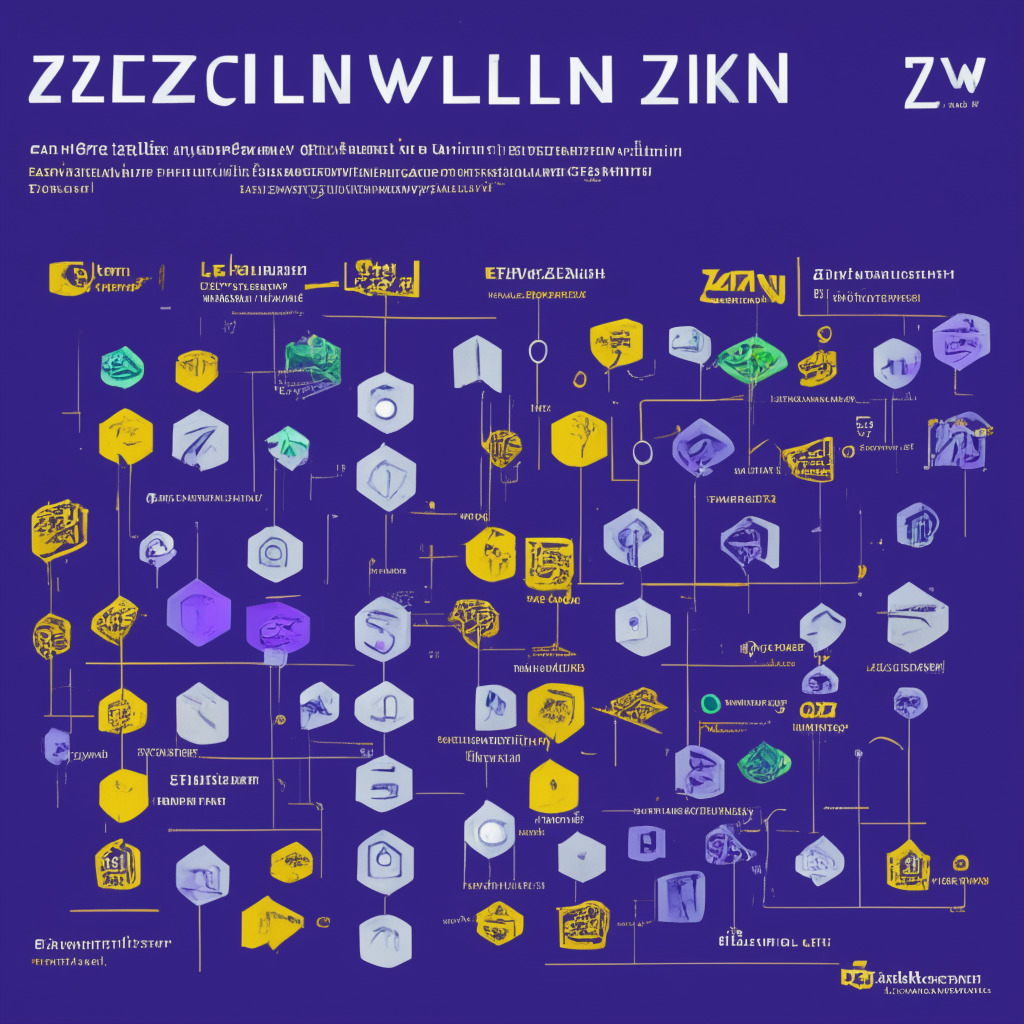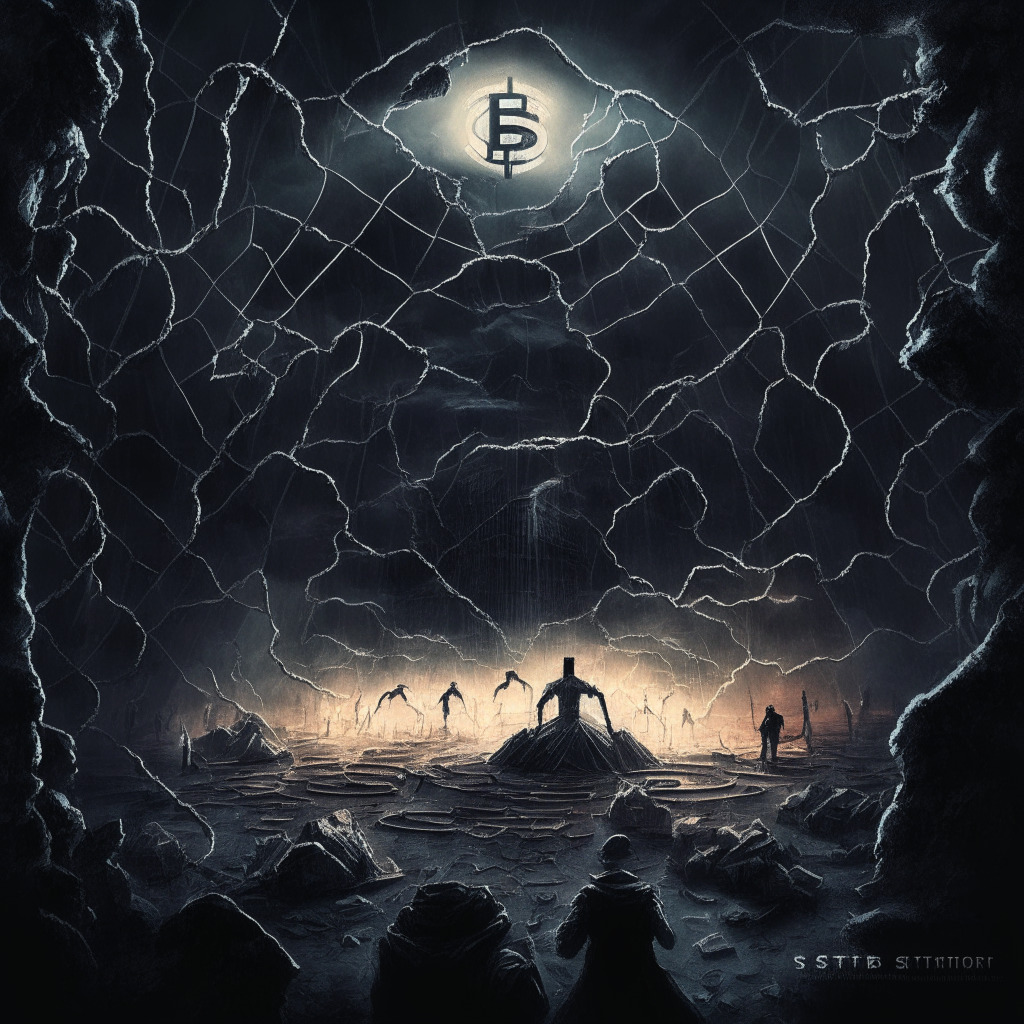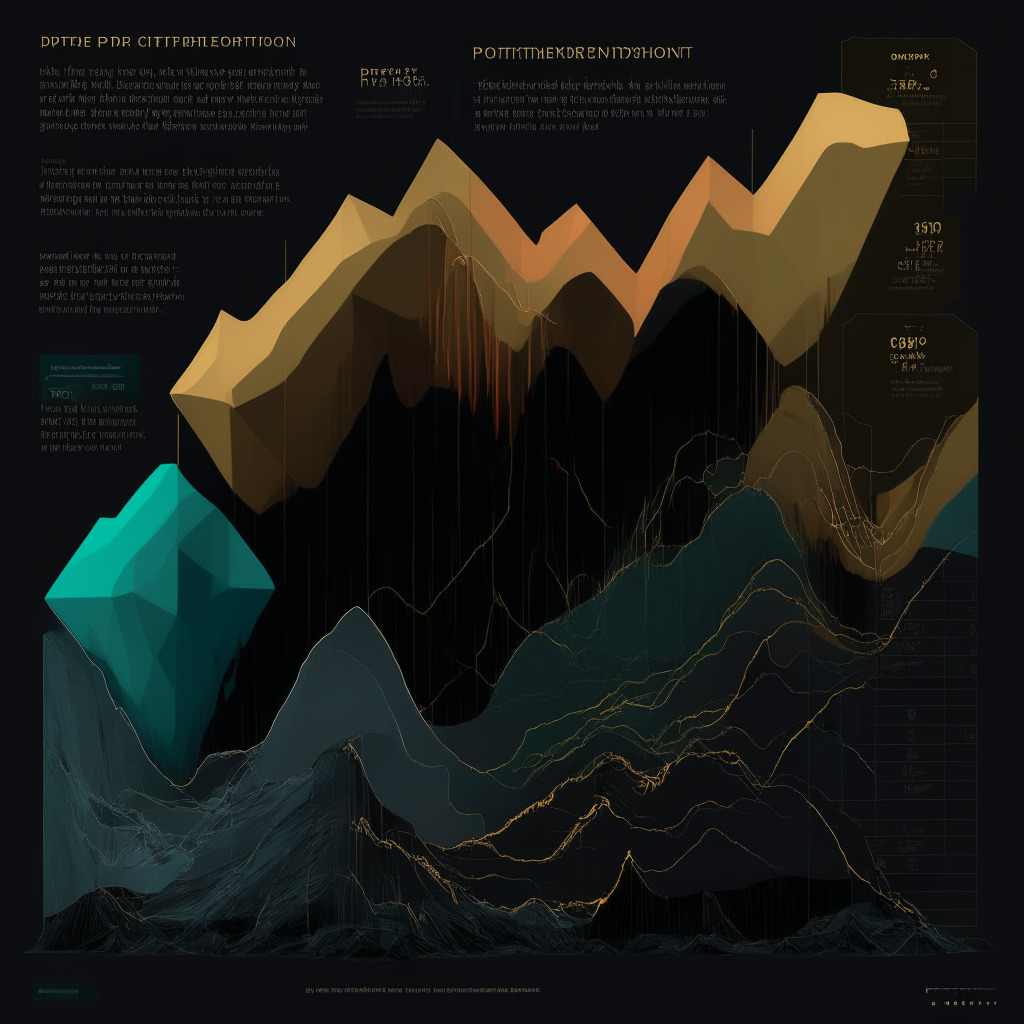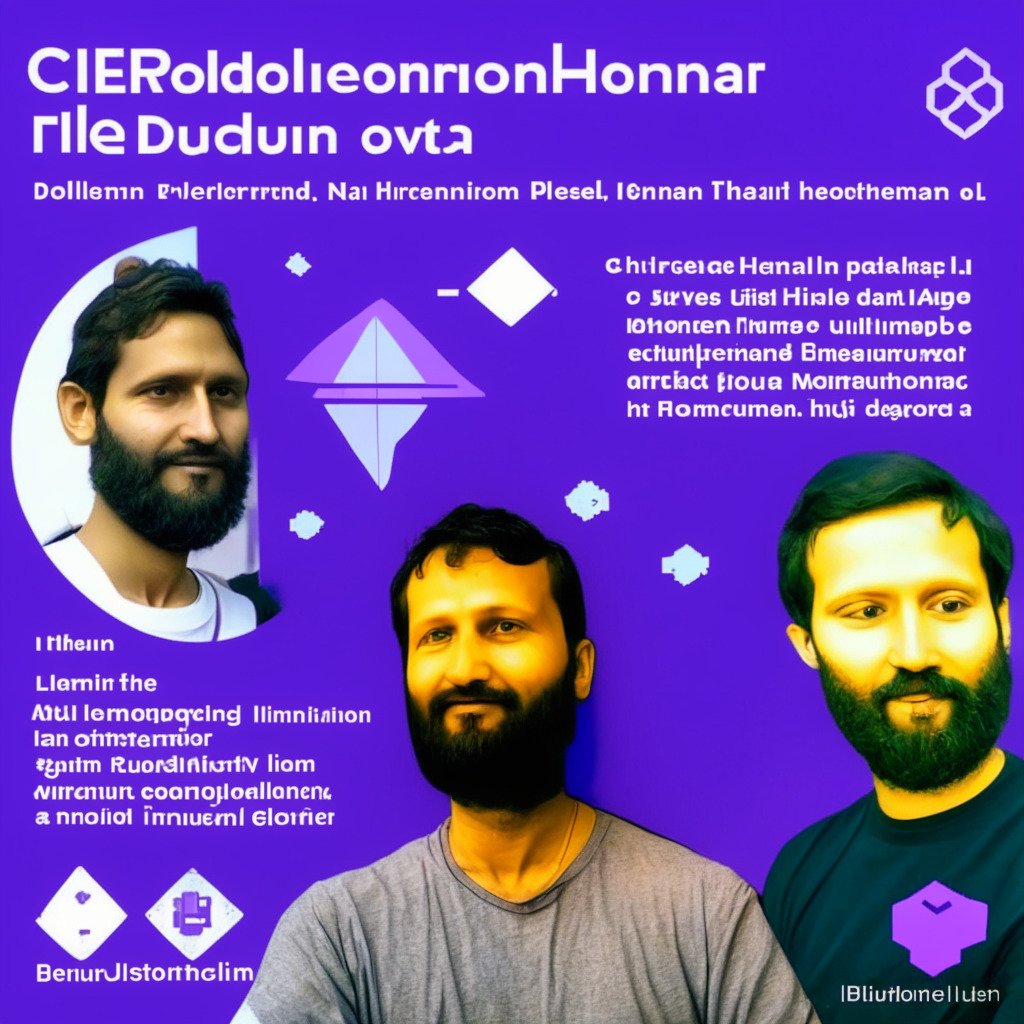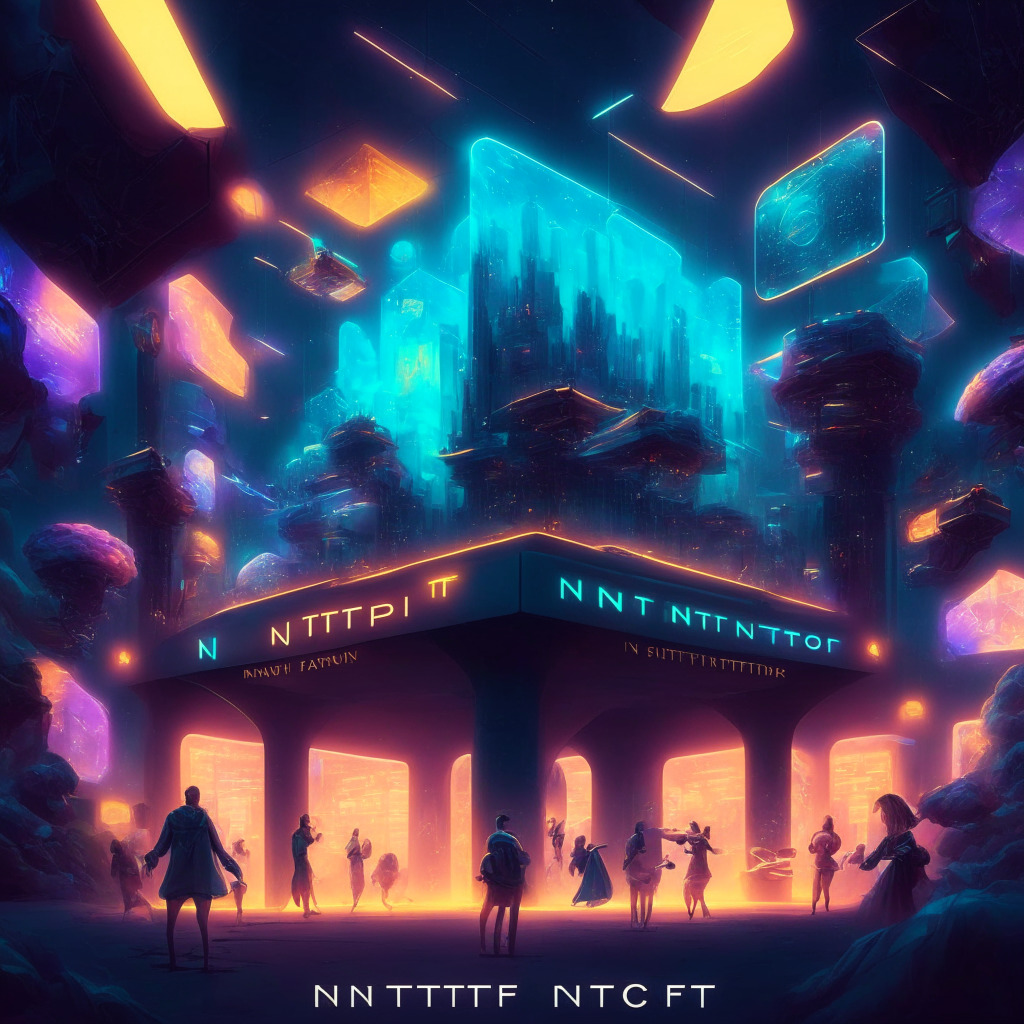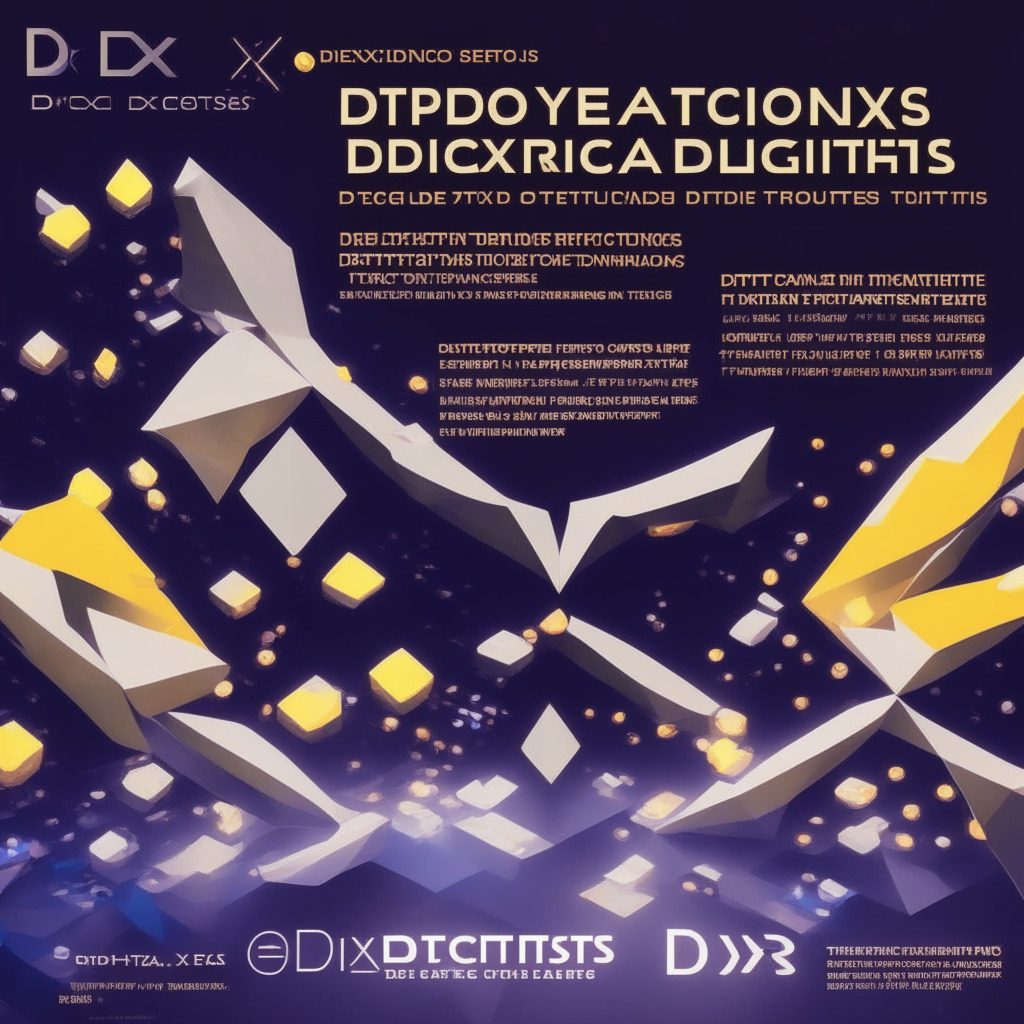Polygon Labs proposes upgrading its proof-of-stake (PoS) chain to a zkEVM validium to improve security and performance. The upgrade addresses issues like fast block times affecting gas estimation and chain reorgs while integrating zero-knowledge proofs into the infrastructure. Implementation is expected by Q1 2024 if accepted.
Search Results for: Polygon
Polygon PoS Upgrade to zkEVM Validium: Security vs Scalability vs Decentralization Debate
Polygon co-founder Mihailo Bjelic proposes an upgrade to the Polygon PoS network, suggesting a shift to a “zkEVM validium” version for increased security through zero-knowledge proofs. This upgrade would enable Polygon zkEVM for high-value transactions, offering lower fees and enhanced security from Ethereum’s features, targeting applications like Web3 gaming and social media.
Exploring Polygon PoS Upgrade to zkEVM Validium: Scalability, Security, and Future Prospects
The Polygon Labs engineering team proposed an upgrade to Polygon Proof-of-Stake (PoS) sidechain, transitioning to ‘zkEVM Validium,’ an Ethereum-secured Layer 2 network secured by zero-knowledge proofs. Targeted for Q1 2024, this upgrade aligns with Polygon 2.0’s vision and aims to enhance scalability, security, and interoperability within the broader cryptocurrency ecosystem.
Polygon’s ZK Technology Upgrade: Boon or Bane for Blockchain’s Future?
Polygon aims to make its primary chain compatible with zero knowledge (ZK) technology, potentially transforming it into a zkEVM validium and ensuring Ethereum Virtual Machine compatibility. This upgrade could enhance security, eliminate reorgs, expedite transactions, and scale the blockchain more effectively. However, the complex integration may introduce unforeseen challenges.
Bakkt Delists Solana, Polygon, Cardano: Regulatory Impact on Crypto’s Future and Adoption
Bakkt delists Solana, Polygon, and Cardano due to regulatory uncertainty following the US SEC’s announcement considering them securities. This decision mirrors Robinhood, and both are proactively awaiting further clarity on offering a compliant list of coins.
Polygon 2.0: Unleashing Unlimited Scalability and Bridging Crypto’s Gaps in a Troubled Market
Polygon 2.0, an Ethereum-based Layer-2 scalability solution, aspires to democratize the global economy by creating a user-centric, equitable internet experience. However, uncertainty looms due to the SEC ruling on its native cryptocurrency, MATIC. The new iteration focuses on unification, infinite scalability, and leveraging Zero-Knowledge technology for seamless interaction.
The Arrival of Polygon 2.0: Transforming Internet & Blockchain with ZK Technology
Polygon Labs announces “Polygon 2.0,” a set of upgrades designed to establish the “Value Layer” of the internet, enabling users to create, exchange, and program value online. Powered by Zero-Knowledge (ZK) technology, Polygon 2.0 aims to support limitless chains and seamless cross-chain interactions, potentially transforming internet use and blockchain integration while facing regulatory challenges.
Polygon 2.0: Navigating Global Regulatory Hurdles and Community Control Challenges
Polygon unveils its upcoming project, Polygon 2.0, focusing on development and deployment outside the US amid a tough regulatory environment. With the aim to attract the global community’s attention, Polygon 2.0 will be a network of ZK-powered L2 chains, emphasizing community-driven decisions and facing challenges from US regulatory crackdowns on digital assets.
Polygon 2.0 Blueprint: Exciting Potential or Cause for Concern in Blockchain Evolution
The upcoming Polygon 2.0 blueprint announcement, focusing on topics like future PoS chain, token utility, and community governance, could significantly impact blockchain technology. However, healthy skepticism is warranted as competition with Ethereum and potential internal conflicts pose challenges.
Solana, Cardano, Polygon Unite Against SEC: Navigating Regulatory Challenges in Crypto
Solana, Cardano, and Polygon unitedly challenge the SEC’s attempt to classify their cryptocurrencies as securities, seeking regulatory clarity to foster innovation and uphold consumer interests. With a combined market cap exceeding $21 billion, they emphasize their tokens’ importance and strive to collaborate with regulators for clear guidelines and a balanced crypto ecosystem.
Cardano, Solana, Polygon vs SEC: Battle for Token Clarity and Market Recovery
The Input-Output Global (IOG), responsible for Cardano development, and foundations behind Solana and Polygon, are disputing recent SEC allegations that their tokens are securities. They aim to clear the tokens and maintain operations despite market fluctuations and uncertainty, urging cautious investor decision-making.
SEC Targets Solana, Polygon, and Cardano: Unraveling the Security Debate and Market Impact
The SEC claims Solana, Polygon, and Cardano are securities, amidst lawsuits against Binance and Coinbase for offering and trading these tokens. The three coins undergo price decline and defend their regulatory statuses, emphasizing collaboration with regulators and exploring potential legal arguments.
Polygon Price Plunge: Analyzing the Potential for Recovery Amid Bearish Crypto Market
In a bearish crypto market, Polygon coin price dropped 45.4% to reach $0.5 support level. With growing buying pressure at this mark, a recovery may be on the horizon. MATIC’s recent integration with Kraken’s NFT platform and key resistance levels are crucial factors in potential rallies.
Robinhood Ends Support for Cardano, Polygon, and Solana Amid SEC Lawsuits: Impact on Crypto
Robinhood announced the end of support for Cardano, Polygon, and Solana due to their identification as unregistered securities in SEC lawsuits against Binance and Coinbase. The decision aims to advocate for regulatory clarity and protect customers amidst the ongoing legal uncertainties.
Polygon’s SEC Troubles vs Ecoterra’s Green Evolution: A Tale of Two Crypto Projects
Polygon’s native MATIC token experienced a nearly 20% dip following the SEC’s scrutiny. In contrast, eco-friendly project Ecoterra’s presale is approaching the $5 million milestone. Leveraging blockchain technology, Ecoterra aims to promote responsible recycling, carbon offset, and environmental impact transparency through its native $ECOTERRA token.
Ethereum and Polygon Co-founders Unite for Covid Research: Exploring Blockchain’s Humanitarian Potential
Ethereum co-founder Vitalik Buterin and Polygon co-founder Sandeep Nailwal collaborate to support additional Covid-19 research projects through Nailwal’s Crypto Relief fund. The focus includes understanding long Covid and improving air filtration and ventilation in buildings, recognizing the potential of cryptographic methods and funds for global well-being.
Robinhood Delists Cardano, Polygon, Solana: Impact of SEC’s Crypto Exchange Crackdown
Robinhood announced its decision to delist Cardano (ADA), Polygon (MATIC), and Solana (SOL) on June 27 due to the SEC’s claims that they are securities. This comes amidst the SEC’s ongoing crackdown against major crypto exchanges Binance and Coinbase, raising concerns about regulations and market growth.
Ethereum and Polygon Co-founders Tackle India’s COVID-19 Crisis: Potential and Challenges
Ethereum co-founder Vitalik Buterin and Polygon co-founder Sandeep Nailwal collaborate with India-based Crypto Relief to send $100 million towards COVID-19 research and development of medical infrastructure in India. Ensuring effective fund distribution and navigating legal complexities will be crucial for achieving desired outcomes.
Kraken Launches NFT Marketplace on Polygon: Boon or Impediment for the NFT Ecosystem?
Kraken is set to launch its NFT Marketplace on the Polygon network, featuring over 250 collections and zero trading fees. The integration aims to ensure ultra-fast and efficient performance in the NFT space, attracting artists and enthusiasts.
Taurus, Polygon, and the Rising Popularity of Asset Tokenization in Europe
Digital asset infrastructure provider Taurus integrates with Polygon blockchain, enabling clients to issue digital securities. With tokenization gaining popularity, Taurus draws interest from major banks like Credit Suisse and Deutsche Bank, blending traditional finance with innovative Web3 solutions.
Tokenization Revolution: Taurus, Polygon & the Future of Mainstream Finance
The partnership between Swiss digital asset infrastructure provider Taurus and Ethereum scaling network Polygon highlights the growing traction of blockchain technology and tokenization within mainstream finance. With numerous financial institutions seeking blockchain-agnostic and token-agnostic infrastructure, the landscape will continue to evolve, attracting players from various sectors and revolutionizing asset management solutions while addressing security, scalability, and compliance concerns.
Deutsche Telekom Embraces Blockchain by Supporting Polygon: Analyzing the Partnership
Deutsche Telekom enters blockchain sector by supporting Polygon infrastructure as a validator, aiming to boost security and decentralization. The partnership is expected to unlock ownership and autonomy, making Web3 technology more accessible and encouraging businesses to embrace blockchain via Polygon.
Deutsche Telekom Dives into Blockchain as Polygon Validator: Boon or Bane?
Deutsche Telekom has entered the blockchain space as a validator on Ethereum scaling solution, Polygon, providing staking services and enhancing the potential of blockchain technology. This move reflects their growing interest in the industry, attracting large-scale investors and driving innovation in decentralized finance.
Ethereum Scaling Meets Telecom Giant: Exploring Polygon and Deutsche Telekom Partnership
Deutsche Telekom partners with Ethereum Layer-2 scaling platform Polygon, joining as one of the 100 validators on its Proof-of-Stake (PoS) network. The collaboration aims to improve the Ethereum ecosystem and strengthen Polygon’s protocol security, governance, and decentralization, attracting attention across multiple industries.
How Reddit and Polygon Paved the Way for NFT Adoption and Web3 Synergy
Reddit’s NFT launch on the Polygon platform successfully onboarded 9.7 million users within ten months, driving substantial user engagement. Collaborations with brands like Nike, Starbucks, and Sotheby’s demonstrate Polygon’s credibility as it aims to become the “value layer of the internet,” aligning with the growth of cryptocurrency and blockchain technology.
FastLane Labs’ MEV Solution on Polygon: Catalyst or Controversy?
Multicoin Capital leads a $2.3 million seed funding round for FastLane Labs, a maximal extractable value (MEV) protocol designed for the Polygon network. FastLane Labs offers an innovative auction system that rewards validators without spamming the blockchain, using off-chain and external auctions to minimize redundant transactions.
Aave V2 Polygon Bug: How It Happened and the Road to Recovery
Aave V2 users on the Polygon blockchain have faced difficulties accessing funds due to a faulty upgrade in the ReserveInterestRateStrategy contract, affecting various token holders. Despite challenges, Aave governance proposed a solution and continues to address the issue while maintaining platform stability.
Aave’s Polygon Issue: Funds Stuck, Solution Hinges on Crucial Governance Vote
Aave recently faced an issue with its V2 Polygon platform, preventing users from interacting with Wrapped Ether, Tether, Wrapped Bitcoin, and Wrapped Matic pools, and withdrawing assets. Aave V2’s ReserveInterestRateStrategy upgrade is incompatible with Polygon, impacting assets worth $110 million. Aave assures funds are safe, pending a governance vote to resolve the issue.
Ethereum’s Polygon zkEVM Soars: Analyzing Record Growth and Potential Pitfalls
Ethereum’s high-performance scaling solution, Polygon zkEVM, has witnessed significant success with a new all-time high in transaction volume and a 70% increase in Total Value Locked. Polygon zkEVM offers enhanced privacy, security, low transaction fees, and quick confirmation times, making it highly attractive for financial applications.
Battle of the DEXs: Tradecurve Challenges Polygon and Polkadot for Crypto Dominance
Emerging projects like Tradecurve.io, offering low fees, fast transactions, and an intuitive user interface, are challenging established platforms like Polygon and Polkadot. With features like the TCRV token and 500:1 trading leverage, Tradecurve.io has captured the Web3 community’s attention and presents a promising alternative for cryptocurrency investors.
Creta’s Web3 Gaming Potential: Polygon Ventures Investment and Challenges Ahead
Creta, a video game development company, recently completed a strategic private investment round, with Polygon Ventures among the key investors. The raised funds aim to advance Creta’s Web3 gaming platform and enhance the gaming experience for fans worldwide. This alliance signifies a potentially significant milestone in the Web3 gaming industry.
Polygon’s Upswing and Solana’s Descent: Navigating Crypto Market Uncertainties
Polygon (MATIC) rebounded in today’s trading session, moving closer to the $1.00 mark and showing increased optimism, while Solana (SOL) faced a decline, highlighting the uncertainty within the cryptocurrency market. Stay updated with price analysis to make informed investment decisions.

